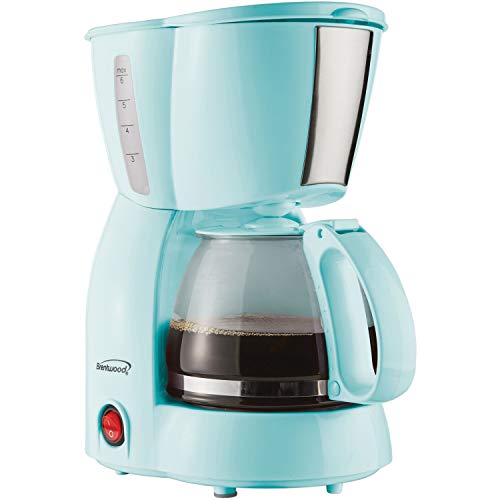Benefits of Coffee for Liver Health
This site contains affiliate links to products. I may receive a commission for purchases made through these links. However, this does not impact my reviews and comparisons. I highlight products I use and recommend to friends. Please see disclosures.
Coffee habit? That’s a healthy one!
Remember the days when coffee was villainized as the enemy of a healthy lifestyle? I’m so glad the tide has turned. (But remember, we are talking coffee in moderation!)
Add another potential benefit to coffee’s list of recent wins.
As it turns out, your daily cup of joe might be doing more than just perking you up—it could also be benefiting your liver.
Research suggests that moderate coffee consumption has been associated with various liver health benefits. So if you’re one of the millions of Americans curious about fatty liver disease or wondering how improving your liver health will affect your overall health, you’ve come to the right place to find a reason for a daily cup of coffee.
Here's why coffee can be considered good for the liver:
1. Reduced Risk of Liver Diseases.
Numerous studies have found an inverse relationship between coffee consumption and the risk of liver diseases, including liver fibrosis, cirrhosis, and liver cancer. For example, research indicates that regular coffee drinkers have a lower risk of developing liver cirrhosis, a condition characterized by extensive scarring of the liver tissue due to long-term damage.
2. Liver Enzyme Regulation.
Coffee consumption has been linked to lower levels of liver enzymes. Elevated levels of these enzymes can indicate liver damage. Regular, moderate coffee intake may help regulate these enzymes, signaling improved liver health.
3. Anti-Inflammatory.
Chronic inflammation is a common factor in many liver diseases. Coffee is rich in bioactive compounds, including polyphenols and chlorogenic acid, which possess anti-inflammatory properties. By reducing inflammation, coffee may contribute to the protection of liver cells from damage.
4. Antioxidants.
Coffee is a rich source of antioxidants, which help neutralize harmful free radicals that can damage cells and lead to oxidative stress. The liver is particularly susceptible to oxidative stress due to its role in detoxification processes. Antioxidants in coffee, such as caffeine and chlorogenic acid, can help combat oxidative stress and support liver health.
5. Reduced Risk of Liver (among other types of) Cancer.
Several studies have suggested that regular coffee consumption is associated with a decreased risk of liver cancer, one of the most aggressive and deadly forms of cancer. Coffee's beneficial effects may be attributed to its ability to inhibit the growth of cancer cells and suppress inflammatory pathways.
6. Improved Insulin Sensitivity.
Coffee has been shown to improve insulin sensitivity and reduce the risk of type 2 diabetes. As diabetes is a risk factor for non-alcoholic fatty liver disease (NAFLD), which can progress to more severe liver conditions, coffee's impact on insulin sensitivity indirectly benefits liver health.
7. Enhanced Fat Metabolism.
Coffee consumption has been linked to enhanced fat metabolism. It may help increase the breakdown of stored fats, which is particularly relevant for individuals with fatty liver disease. By aiding in fat metabolism, coffee can potentially mitigate the progression of fatty liver to more severe conditions.
It's important to note that while moderate coffee consumption seems to offer potential liver health benefits, excessive intake may have adverse effects. Too much caffeine can disrupt sleep, increase anxiety, and potentially strain the cardiovascular system. Furthermore, individual responses to coffee can vary, so it's advisable to consult with a healthcare professional, especially if you have underlying health conditions.
In order to get the most benefits, here are a couple of tips to follow:
Avoid Artificial Additives.
Skip artificial sweeteners, syrups, and creamers that could contain unhealthy additives and excessive sugars. These might counteract any potential liver benefits.
Limit Sugar.
If you prefer sweetening your coffee, use a small amount of natural sweeteners like maple syrup, stevia, or monkfruit. Be mindful of not adding excessive sugar.
And While We’re At It, Creamer Too.
If you use dairy, consider low-fat or non-dairy alternatives like almond milk, oat milk, or soy milk. Excessive saturated fat intake can be detrimental to liver health.
Be Mindful of Portion Sizes.
Stick to a moderate serving size, usually around 2-3 cups per day. Avoid excessive consumption, as too much caffeine can have negative effects.
Avoid Overheating.
Overheating coffee can create compounds that might be less beneficial. Brew your coffee at the right temperature and avoid reheating it multiple times.
Stay Hydrated.
Remember that excessive coffee consumption can lead to dehydration. Drink plenty of water throughout the day to stay properly hydrated.
Choose Natural Flavors.
If you like flavorings, consider adding natural options like a dash of cinnamon or cocoa powder. These can add taste without adding unnecessary calories or artificial ingredients.
Filter Your Coffee.
Brewing methods that involve a paper filter, such as drip coffee makers, can help remove some compounds that could be harmful in excessive amounts.
This means that your morning coffee is cheap, too – no need for an expensive Italian machine!
Side note on cinnamon’s benefits: Cinnamon tastes great and adds flavor without calories or junky stuff, but it also has antioxidants and anti-inflammatory properties, helps regulate blood sugar, is linked to heart health and better cholesterol levels, supports brain health and cognitive function, helps with digestive health, is anti-microbial, and can help with weight loss/management (by reducing sugar cravings)! As with anything though, cinnamon is better in moderation!
And finally, two caveats.
Moderate coffee consumption has been associated with potential liver benefits, but it's important to approach this with caution and consider individual factors. Research suggests that consuming around 2-3 cups of coffee per day might have a positive impact on liver health for some individuals. Here are two things to keep in mind:
Individual Variability:
People react differently to coffee due to genetics, metabolism, and existing health conditions. Some individuals might experience discomfort or adverse effects even with moderate consumption.
Underlying Conditions:
If you have liver issues or other health conditions, it's crucial to consult with a healthcare professional before making significant changes to your diet, including coffee consumption.
In conclusion, coffee's potential benefits for the liver are supported by a growing body of research. Its antioxidant, anti-inflammatory, and enzyme-regulating properties make it a favorable beverage for promoting liver health.
However, moderation is key, and it's always a good idea to maintain a balanced lifestyle that includes a variety of nutrient-rich foods and healthy habits to ensure the well-being of your liver and overall health.
Remember that while coffee might offer certain potential benefits, it's just one aspect of a larger picture of maintaining good health. Making informed choices based on your individual health circumstances is crucial.









